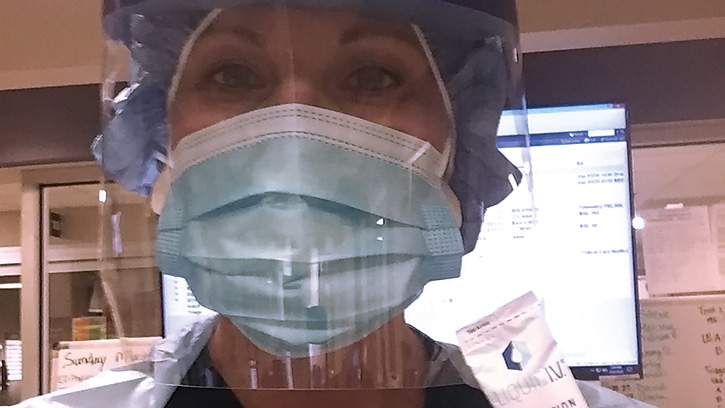COVID-19 Changes the Game for Entrepreneurs
STARTUPS & INNOVATORS
COVID-19 has scrambled results, fortunes, and prospects in the world of food and beverage startups. And as it did everywhere else, the coronavirus shock delivered an existential blow to some, a slight headwind to others, and outcomes everywhere in between for the rest.
A Boring Life, for instance, is a brand of artisan honeys and CBD-infused snacking products, hemp tinctures, and dog gummies that had to pause in its U.S. rollout in March even after penetrating major specialty stores in the Pacific Northwest.
Brokers told owners Serafina Palandech and Jennifer Johnson that efforts to expand distribution for now would be costly and ineffective even though, as the company believed, many American consumers probably could have used the purported calming effect of CBD during the coronavirus shutdown. Meanwhile, e-commerce shipments to Chinese consumers grew.
“It would have been a weird time to be marketing, and you’d have to be incredibly sensitive about what you say and how you’re saying it,” Palandech says.
Meanwhile, Liquid I.V. had to pivot quickly to meet rising demand for its “hydration multiplier” powder supplement packets after the U.S. Surgeon General stressed the importance of hydration for boosting the immune system in the fight against COVID-19. The startup sold more than 300,000 packets online within a week of its launch; the company also donated hundreds of thousands of sticks to hospitals and food banks.
And COVID-19 didn’t nick output, distribution, or sales for EggLife Foods, a three-year-old startup that makes tortillas, wraps, and other products out of egg whites at a factory in Indiana.
“We haven’t had any gaps in production,” CEO David Kroll says. “We’re servicing all the demand at our key retailers, which remains really strong.”
While wholesale egg prices skyrocketed during the early stages of the pandemic as American consumers flocked to a protein-packed, easy-to-prepare staple while sheltering in place, EggLife didn’t use it as “an opportunity to take pricing” and kept its suggested price point at $4.99. It certainly helped that an EggLife partner is Rose Acre Farms, America’s second-largest egg producer.
While affecting startups in such widely varying ways, the coronavirus shock was a disaster for many food and beverage fledglings, especially those dependent on some sort of foodservice trade.
“A lot of companies won’t be able to cover their costs in the next few months,” says Natalie Shmulik, CEO of The Hatchery, an industry incubator. “Many have tried to pivot” to delivery and e-commerce, she says, “but some didn’t have the capabilities.”
It’s unclear yet if there will be a disproportionate or differentiated funding impact on food and beverage startups, but overall early-stage investing began dwindling as the extent of the COVID-19 crisis became clear. Private market funding of startups in the first quarter was tracking for just $77 billon, down more than 16% compared with the last quarter of 2019 and down nearly 12% from the year-earlier total, according to CB Insights.
And seed-stage funding, which accounts for many startups’ first major foray into raising capital, was projected to decline 22% in the first quarter compared with the fourth quarter of last year.
Amid reshuffling and recovery, entrepreneurs will have to focus on rebirth. “Now we’re encouraging members to think about what reopening for business looks like,” Shmulik says. “You can’t just press a button. You have to build a strategic plan for going back to market.”
For example, Jordan Buckner, CEO of TeaSquares, is eying whether a likely long-term increase in curbside pickup at grocery stores may hurt startup brands like his company’s caffeinated energy snacks. “It could hurt brands that until now have expected to be discovered by many consumers walking the store,” he says.
Among top priorities for packaged goods startups could be to ensure that they have a robust e-commerce platform, and for restaurants to put delivery capabilities above nearly everything else. Consumer preferences may change for the long term in other significant ways, too.
“Maybe cooking will come back permanently,” says Alan Reed, executive director of the Chicagoland Food & Beverage Network. “People will also be more interested in shelf-stable stuff for pantry stocking. And yet, I also think there will be more interest in locally produced things.”


